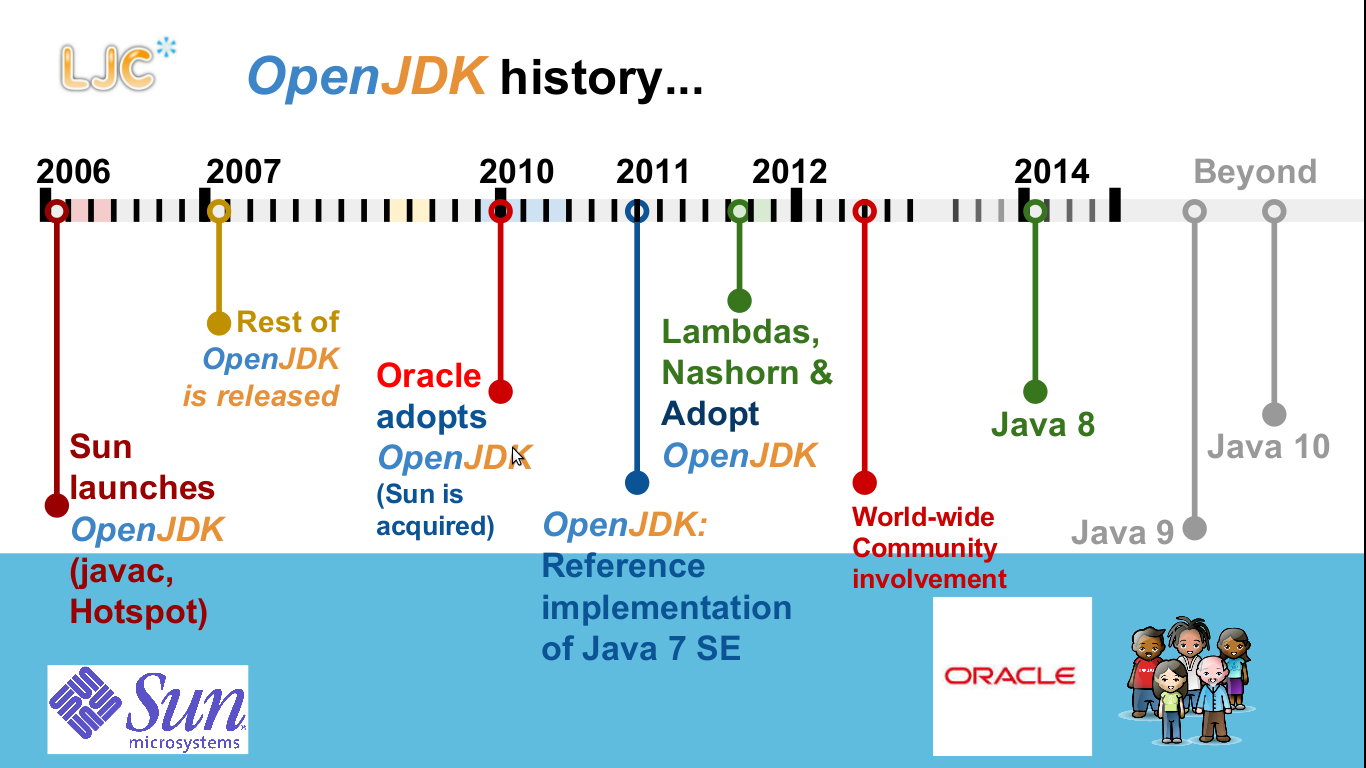

OpenJDK is 99% the same code as Oracle JDK (depending on what provider you’re getting it from) so what this really boils down to is support.ģ.And the contributions of the OpenJDK community often outperform Oracle JDK. However, the performance of OpenJDK is growing. Historically, Oracle JDK has had better performance than OpenJDK.
#ORACLE OPENJDK SOFTWARE#
Since January 2019, businesses now need to purchase a commercial license (from Oracle) in order to receive software updates.Oracle JDK requires a commercial license under the Oracle Binary Code License Agreement. OpenJDK is a completely open-source Java with a GNU General Public License. The biggest difference between OpenJDK and Oracle JDK is licensing.Also, if the server is in a virtualized environment, the entire cluster “cores” would be liable for license fee even if you have just one server with Java in the cluster.Īs per Oracle support the last non-billable Java version Java 1.8.0.202 (64 bit) let us first go through the highlights. To give you an idea of the cost, each core of the server must be licensed, and it costs the US $25 core per month.
#ORACLE OPENJDK PATCH#
Keep Oracle Java and upgrade to supported patch level and pay the subscription costs. Note: Some applications which require Oracle Java may have included this cost as a part of the main application license fee, please validate this with your application vendor. Opt to go with Open source versions again if compatible with your need.Uninstall the Oracle Java versions if it/they are not needed.

Therefore, we must determine if Oracle Java JE or JDK installed are indeed necessary to run any of the applications on the server or not.įor each server that you own, we ask that you select the appropriate response as follows: Oracle has introduced a subscription fee for anything newer than Oracle Java JE 8 patch 211 and JDK 11, and it is not ideal to keep the version at an older, non-supported patch level from a security vulnerability point of view.


 0 kommentar(er)
0 kommentar(er)
